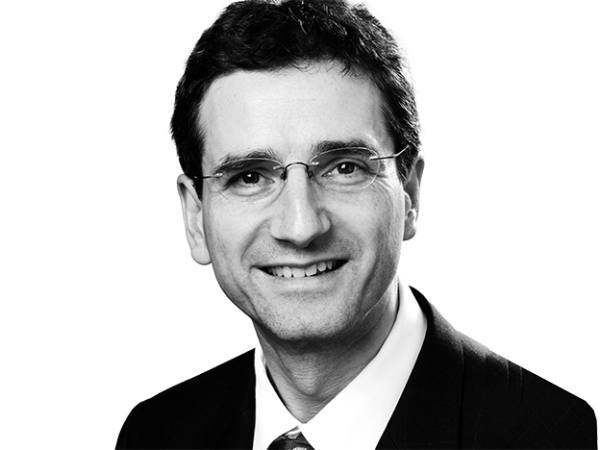UK investors tend to have a bias to their home market, but overseas exposure is important and this matters for dividends too. Over the past few years the UK market has become more reliant on just a few dividend payers. This means that if any one of these cuts their dividends it can have a substantial impact on the UK’s overall dividend opportunities. And by not investing overseas, you miss out on the many attractive opportunities outside the UK. You can get exposure to overseas income via global equity income funds or, if you have a large portfolio and high enough risk appetite, some regional equity income funds, which could provide stronger returns than broader funds.
Fidelity Global Dividend (GB00B7778087)
Fidelity Global Dividend has a good record of outperforming the Investment Association Global Equity Income sector average, although can lag at times because of its defensive positioning. But this means that it can also outperform in difficult periods such as in 2018 when it made positive returns in contrast to its peer group average’s and MSCI World index’s negative returns.
The fund’s manager, Daniel Roberts, likes to invest in companies with a healthy yield, growing level of income and the potential for capital growth. When considering potential investments, he places a large emphasis on dividend sustainability and whether the share price provides an adequate margin of safety. Roberts also manages risk conservatively, focusing on companies with predictable, consistent cash flows and simple, understandable business models, with little or no debt on their balance sheets.
Fidelity Global Dividend is well-diversified across sectors and geographies mainly via developed market-listed large-cap companies. The fund’s largest holdings at the end of July were consumer stables companies Unilever (ULVR) and Procter & Gamble (US:PG), which accounted for 4.3 per cent and 3.9 per cent of its assets, respectively.
Schroder Oriental Income Fund (SOI)
Schroder Oriental Income Fund was run by highly respected Asia manager Matthew Dobbs between its launch in 2005 and the end of last year, during which time it largely delivered strong performance. Since then, it has been run by Richard Sennitt, who is also an experienced Asian equities manager and has run Schroder Asian Income Fund (GB00BDD29849) since its launch in 2006. He had worked with Mr Dobbs on his Asian funds for 13 years and continues to be supported by a team of analysts in Asia.
Sennitt and his team pick holdings according to their individual merits rather than because of broader factors such as being in a particular industry sector. They favour what they consider to be good companies where there is both a strong income case and potential for capital growth.
The trust’s largest holdings at the end of July were Taiwan Semiconductor Manufacturing (TAI:2330) and Samsung Electronics (KOR: 005930) which accounted for 8.9 per cent and 8.4 per cent of its assets, respectively.
The trust has grown its dividend every year since launch in 2005 and in the first half of its current financial year has paid two dividends of 3.8p each – the same as the year before. The trust used some of its revenue reserves to make the increase last year and its chairman says it will do the same again if necessary. The trust had revenue reserves of £30.24m at the end of its last financial year, which could cover 1.1 years’ worth of dividends in its current financial year, according to the Association of Investment Companies (AIC).
In its last financial year, the trust paid a dividend of 10.3p per share, an increase of 2 per cent on what it paid the year before.
A downside to Schroder Oriental Income Fund is its performance fee of 10 per cent of any outperformance of its NAV over an annual hurdle of 107 per cent of the net asset value (NAV) at the end of the previous calculation period. This was not triggered in the trust’s financial year to 31 August 2020, so its ongoing charge was 0.87 per cent. But in years when it is, the two charges have added up to a considerably higher cost, for example 1.95 per cent in the year to 31 August 2017.
However, when this happens Schroder Oriental Income Fund’s shareholders have been compensated with strong returns. And they have been consistently paid an attractive income.
European Assets Trust (EAT)
European Assets Trust invests in smaller companies and can pay dividends out of capital, if the income from its investments is not enough to meet its aim of paying a dividend of 6 per cent of its NAV on 31 December each year. This has proved useful since the outbreak of the pandemic, during which time many of the trust’s holdings have reduced or cancelled their dividends. European Assets Trust’s chairman said in the trust’s half-year report that: “While we have seen some rebound in dividend receipts during the first half of this year, our total dividend income remains subdued. [But] we remain confident of paying an annual dividend equivalent to 6 per cent of NAV at the end of the preceding year. To fund its dividends, the [trust] can use a combination of current-year profits and the distributable reserve.”
As at 30 June 2021, the distributable reserve was worth £335.8m. In 2020, the trust paid total dividends of 70.2p per share, up 17.2 per cent on the 59.9p it paid in 2019. Dividends are paid in four installments a year. As of mid August this year, the trust had a yield of over 5 per cent.
Since last year, the trust has declared its dividends in sterling rather than euros, and to manage sterling/euro exchange rate exposure it may use hedging contracts.
The trust’s annual total returns can be volatile from year to year and it can undergo periods of underperformance. However, its long-term total returns have been good.
The trust’s manager, Sam Cosh, and his team, look to take advantage of market inefficiencies they say arise as a result of small and medium-sized companies being less researched. They look to own high-quality companies with proven business models that are defended by scale, intellectual property and brand or market positions. They also like them to have higher growth rates, margins and returns on capital than the market, and superior cash flow generation and strong balance sheets that provide stability and opportunity for value-added deployment. They will not invest in companies if they do not think that they are reasonably valued.
At the end of July, the trust’s largest holdings were Ringkjoebing Landbobank (DEN:RILBA), a regional bank which provides services to private and corporate customers, and software company Lectra (FRA:LSS). They accounted for accounted for 3.1 per cent and 2.9 per cent of the trust’s assets, respectively.
JPMorgan Global Emerging Markets Income Trust (JEMI)
JPMorgan Global Emerging Markets Income Trust aims to provide a dividend income with the potential for long-term growth. It aims for its collection of investments overall to pay a dividend yield higher than that of MSCI Emerging Markets index.
The trust’s managers, Omar Negyal, Jeffrey Roskell and Isaac Thong, look to invest in sustainable businesses with good dividend growth prospects. When picking stocks they assess attributes such as returns on capital, free cash flow and dividend policies. They also consider financially material environmental, social and governance factors in their investment analysis and decisions.
The trust typically has 50 to 80 holdings, mainly larger companies.
In its financial year to 31 July 2020, the trust paid dividends worth 5.1p per share, the same amount as the year before. This was not fully covered by income from its holdings so it used revenue reserves to maintain this level. When the trust reported its half-year results in April it had revenue reserves worth £7.6m, equivalent to 50 per cent of future annual dividends at the current annual level. It has maintained or increased its dividend in every full year since its launch in 2010. It had a yield of 3.4 per cent at the end of August.
The trust has performed well against MSCI Emerging Markets index, but can undergo periods of volatility, so is not an option unless you have a high risk appetite and long-term investment horizon. Its income objective means that the composition of its portfolio is significantly different to that of MSCI Emerging Markets index, so its returns may be very different to those of the index.
At the end of July, the trust had 32 per cent of its assets in information technology companies and 28 per cent in financials – substantial overweights relative to MSCI Emerging Markets index. And it was relatively underweight in areas including communication services and materials. Geographically, it is overweight in markets including Taiwan and Russia, relative to this index. Taiwan Semiconductor Manufacturing (TAI:2330) and Samsung Electronics (KOR: 005930) were the trust’s largest holdings, accounting for 8.3 per cent and 5.7 per cent of its assets, respectively.
As of 1 August, the trust has cut its annual management fee from 0.9 per cent to 0.75 per cent of its portfolio’s NAV, per year. This follows a cut on 1 August 2020 from 1 per cent to 0.9 per cent of its NAV per year.
| Cumulative total returns | ||||
| Fund/benchmark | 1yr (%) | 3yr (%) | 5yr (%) | 10yr (%) |
| Fidelity Global Dividend | 15.91 | 33.96 | 57.49 | |
| MSCI World index | 26.25 | 43.50 | 90.01 | 272.11 |
| IA Global Equity Income sector average | 23.48 | 26.70 | 52.98 | 164.77 |
| European Assets Trust share price | 55.59 | 53.33 | 89.88 | 386.15 |
| EMIX Smaller European Companies Ex UK index | 36.43 | 39.33 | 87.18 | 236.03 |
| Schroder Oriental Income Fund share price | 21.15 | 22.64 | 47.06 | 168.53 |
| MSCI AC Asia Pacific ex Japan index | 15.47 | 26.24 | 61.52 | 135.55 |
| JPMorgan Global Emerging Markets Income Trust share price | 35.01 | 37.39 | 56.56 | 110.69 |
| MSCI Emerging Markets index | 17.84 | 25.25 | 56.09 | 90.01 |
| Source: FE Analytics as at 31 August 2021 | ||||











